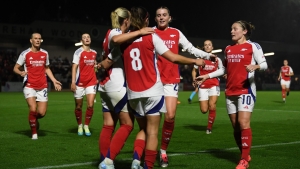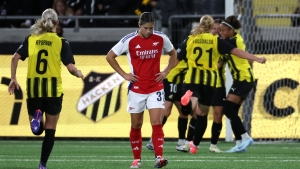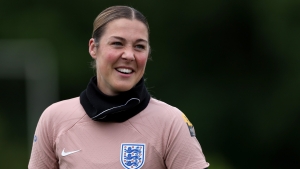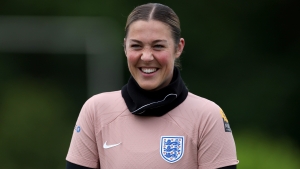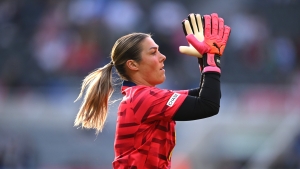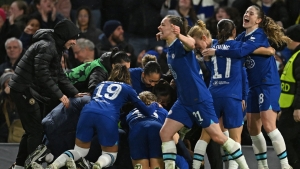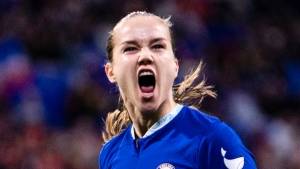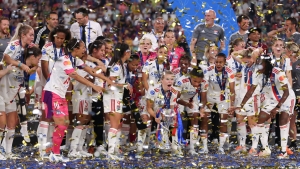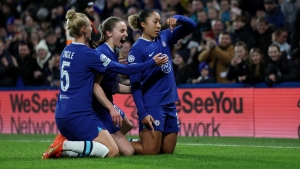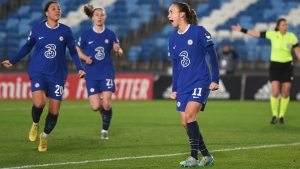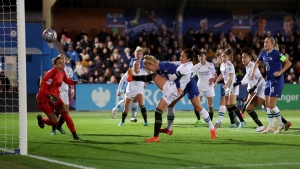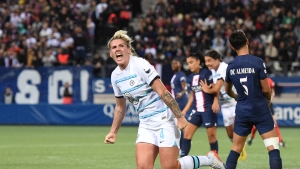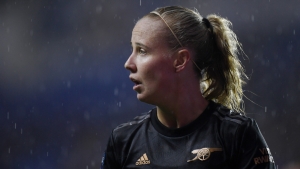Alexia Putellas pipped Beth Mead to the Ballon d'Or, and now the Women's Champions League is set to begin in earnest as the group stage gets under way.
This has already been a spectacular year for the women's game in Europe, with Euro 2022 a roaring success, but the club game is going from strength to strength, too.
The continent's biggest clubs are throwing their support behind women's teams, and although this means some early adopters are being squeezed out, the Champions League is growing in quality and professionalism year by year. This is the second year that has featured a group stage, another sign of progress.
Here, Stats Perform looks at the 2022-23 tournament and its rich promise, with 16 teams vying to reach the final at Philips Stadion in Eindhoven in June.
Before the rise of the Lionesses, there was Lyon... and they are the UWCL queens
French club Lyon have set a high bar with their support and investment in women's football, led by owner Jean-Michel Aulas.
Their first Champions League title came in 2010-11, and last season they landed the trophy for an eighth time with a 3-1 triumph against Barcelona in Turin.
Barcelona headed into that May showpiece in imperious form, but Lyon led 3-0 inside 33 minutes. Putellas pulled one goal back, but it was not to be her day, or Barcelona's.
Instead, Lyon were celebrating, and perhaps nobody more so than Ada Hegerberg, their star Norwegian striker. Battling her way back to full fitness after a ruptured anterior cruciate ligament kept her sidelined for over 18 months, Hegerberg had a goal and an assist in the final.
"I couldn't imagine winning the Champions League a year ago," Hegerberg said that night. "Coming back from injury and getting back to this level is extremely inspiring and I am very grateful."
Now Putellas faces a similar journey. The Barcelona and Spain star, recognised as the world's best player, sustained a major ACL injury on the eve of Euro 2022, and if she plays again this season it will not be until the closing weeks.
Contenders queueing up
Expect Lyon to be strong again of course, but they start with a major test against Arsenal, who have Euro 2022 Golden Ball winner and Ballon d'Or runner-up Beth Mead in their ranks.
Arsenal, of course, have a power couple on and off the pitch in Mead and the brilliant Vivianne Miedema, so Jonas Eidevall's side could push Lyon for top spot in Group C, which also includes Juventus and Zurich.
Of course, such star players may see this competition as a chance to stake a claim for next year's Ballon d'Or.
Barcelona are much changed from last season, with the likes of Jenni Hermoso, Lieke Martens and Melanie Serrano no longer a part of their team. Hermoso and Martens moved on, to Pachuca and Paris Saint-Germain respectively, while Serrano retired at the age of 32, having been a first-team regular since her late teens.
Brazil striker Geyse has joined from Madrid CFF, while Euro 2022 winners Lucy Bronze and Keira Walsh arrived from Manchester City. The loss of Putellas is a big blow, and how Barcelona cope without her against Europe's elite will be a key narrative of the coming months. Bayern Munich, Rosenborg and Benfica are their Group D rivals.
Chelsea were runners-up in 2020-21 but last season saw Emma Hayes' team eliminated on goal difference at the group stage, after they and top two Wolfsburg and Juventus finished tied on 11 points. Hayes is taking time away after undergoing an emergency hysterectomy. The Blues, who have Sam Kerr, Fran Kirby, Millie Bright and Pernille Harder among a star-packed squad, face Real Madrid, PSG and Vllaznia in Group A.
Wolfsburg are hardy perennials of the Women's Champions League and won the trophy back to back in 2012-13 and 2013-14, also finishing runners-up three times. They face Slavia Prague, St Polten and Roma in Group B. With Alexandra Popp fighting fit after the injury that prevented her facing England in the Euro 2022 final, and Lena Oberdorf patrolling midfield, Wolfsburg may not be far away again this season.
Story so far
Manchester City and Real Madrid went head-to-head early in the qualifying stage, and it was City that were squeezed out, losing 1-0 thanks to a goal from Caroline Weir, a player who left the English club to move to the Spanish capital just weeks earlier.
Hopes of a Dutch team reaching the Eindhoven final have already been dashed, with Ajax and Twente eliminated in the preliminaries. Arsenal edged out Ajax 3-2 on aggregate, with Miedema getting the deciding goal, while Twente were ousted by Benfica.
The make-up of this competition has changed immensely over the course of the last 20 years, reflecting the rise of teams being backed by traditionally strong men's clubs.
In 2002-03, the quarter-final line-up consisted of Umea, Toulouse, HJK, Frankfurt, SK Trondheims-Orn, Fortuna Hjorring, CSK VVS Samara and Arsenal.
Swedish side Umea crushed Fortuna Hjorring 7-1 on aggregate in a two-leg final of what was then known as the UEFA Women's Cup.
In name and character, it emphatically belongs to the Champions League family of competitions now, many of the teams that defined its early days no longer a factor. Women's football has gone big-time, and this season's competition should underline that message.























